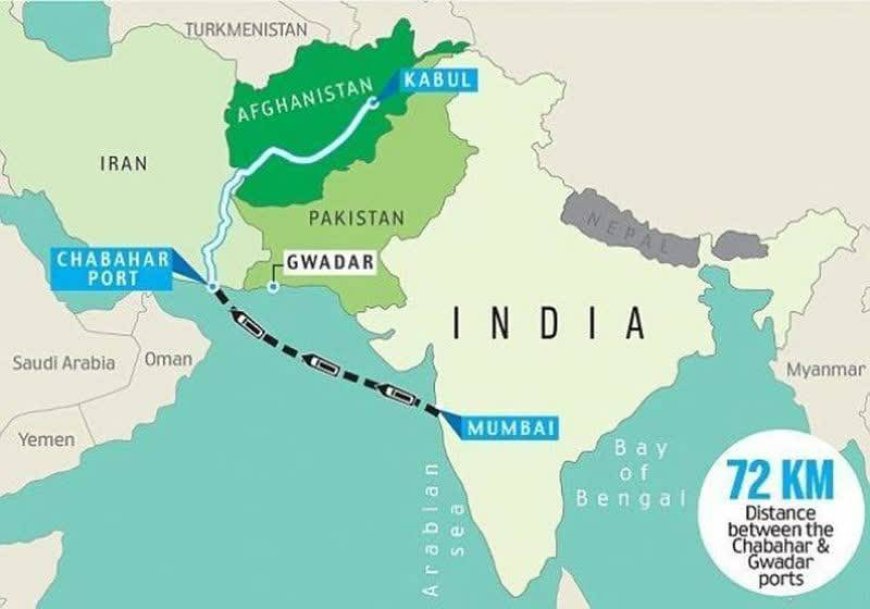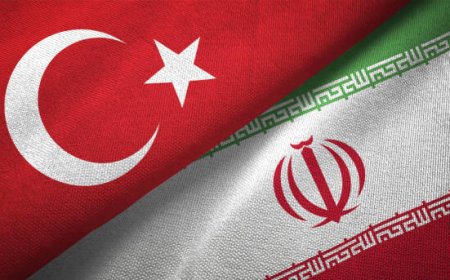Iran's Chabahar Port: A Gateway that Will Reshape the Geopolitics of World?

By: M.S. Qorbani
In a landmark move, Iran and India have recently inked a comprehensive 10-year contract aimed at equipping and operating the strategically vital Shahid Beheshti Port in Chabahar. This bilateral agreement, heralded as a significant milestone in diplomatic and economic relations, holds immense promise for both nations, with far-reaching implications that warrant closer examination.
Under the terms of this momentous accord, India has committed to investing a substantial $120 million towards the procurement of essential equipment to enhance the operational efficiency of the Chabahar port. In addition, an impressive sum exceeding $250 million has been earmarked for bolstering the transportation infrastructure within the port vicinity, signaling a deepening commitment to fortify the maritime connectivity in the region.
The Chabahar port stands as a linchpin in India's strategic calculus, offering a gateway to not only Afghanistan but also serving as a vital conduit to diverse regions spanning Asia and the Caucasus, and even extending as a potential linkage to Europe. By investing in the development of Chabahar, India seeks to forge robust regional connections and trade routes, particularly with landlocked nations like Afghanistan and Central Asian countries. This strategic move is poised to reduce India's reliance on existing trade corridors and counterbalance the influence of the Belt and Road Initiative spearheaded by China.
The burgeoning significance of Chabahar as a pivotal transit hub holds profound implications for Iran's global trade ambitions. Positioned as a potential nexus for transit and international commerce, the port's development is poised to unlock new avenues for Iran to engage with foreign investors and enhance trade networks, particularly with neighboring Central Asian countries and Afghanistan. Iran's partnership with India in elevating Chabahar as a strategic transit hub along the North-South Corridor underscores its strategic intent to leverage foreign investments for bolstering connectivity and trade relations in the region.
Moreover, the infrastructural enhancements and operational expansions at Chabahar port are poised to empower Iran in navigating its complex diplomatic engagements with China and India, both vying for influence in the region. By capitalizing on the strategic positioning of the port, Iran can wield it as a diplomatic lever to foster balanced and nuanced foreign relations, thereby enhancing its geopolitical standing in the Indian Ocean region and beyond.
The bilateral agreement on Chabahar port represents a mutually beneficial pact for Iran, offering avenues for regional trade expansion and access to lucrative markets for its abundant natural resources. This collaborative endeavor not only attracts foreign capital to Iran but also amplifies its role as a pivotal player in the regional economic landscape, while concurrently generating employment opportunities for the country's burgeoning youth population.
The joint efforts of Iran and India in advancing the objectives of the international transport agreement within the North-South Corridor, coupled with the trilateral transit agreement involving Afghanistan, underscore the multifaceted benefits of this strategic partnership. The collaborative initiatives aimed at fostering transit cooperation between India and Afghanistan through Iran, the development of the eastern axis, and the enhancement of regional transport infrastructure exemplify the transformative potential of this agreement to bolster economic synergies and facilitate trade linkages across Central Asia.
Despite the apprehensions raised by the United States regarding engagements with Iran, the unwavering commitment of the Indian government to the Chabahar agreement underscores a strategic shift towards prioritizing long-term investments and regional stability over succumbing to external pressures. Indian Foreign Minister S. Jaishankar's resolute stance in advocating for the development of Chabahar port as a regional boon underscores a departure from traditional compliance with US sanctions, signaling a renewed focus on advancing India's strategic interests.
In the face of concerted efforts by the United States and other stakeholders to undermine Iran's economic capacities, the successful conclusion of the Chabahar agreement represents a poignant triumph for Iran's resilience and strategic foresight. Despite previous setbacks and external interventions, the realization of this landmark 10-year pact signifies a pivotal moment in Iran's ascendancy as a key player in international trade dynamics, consolidating its position within the evolving regional order.
In conclusion, the transformative potential of the Iran-India agreement on Chabahar port transcends mere economic interests, heralding a new era of strategic cooperation and regional integration. As both nations embark on a collaborative journey towards fortifying trade networks and enhancing connectivity, the Chabahar port emerges as a beacon of hope for fostering sustainable economic growth, diplomatic resilience, and geopolitical stability in the region. By leveraging the synergies offered by this groundbreaking pact, Iran and India stand poised to chart a course towards shared prosperity and enduring diplomatic partnerships, solidifying their positions as key architects of the evolving regional landscape.













































